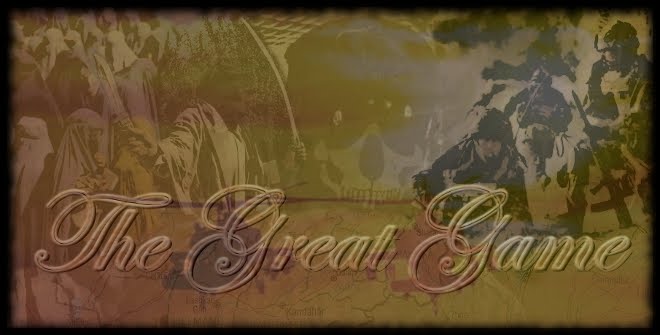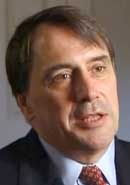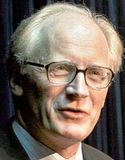“What we had in this election was wholesale fraud. That is to say, in at least a thousand polling centers, the polling centers never opened. And yet, votes were manufactured in those polling centers, or perhaps not even manufactured, merely reported. And in that circumstance, it’s possible that 1/3 of the votes that President Karzai was reported to have received were fraudulent. Incidentally, there was also fraud in the tally of Dr. Abdullah and Ramazan Bashardost, the third candidate, maybe in some of the others. But not on the scale that there was for President Karzai.”
Within three days of the results having been announced, the Electoral Complaints Committee (ECC) had received 225 complaints of misconduct(3) and there was a rapidly developing opinion that something had gone badly wrong. Many Afghans reported coercion, ballot stuffing and other democratic anomalies on such a large scale that the international media community quickly adopted the story that widespread fraud had in fact, taken place. These suspicions were further corroborated when Peter Galbraith was discharged from his position by his Norwegian boss Kai Eide and UN Secretary General Ban Ki Moon(4) for his remarks which were branded damaging to the diplomatic and military missions underway in the country.
Kai Eide (right) and Peter Galbraith (left)
"As you know, Kai Eide and I have had prolonged disagreement as to whether UNAMA should take action to prevent or mitigate fraud in the Afghanistan elections. Given our mandate to support “free, fair, and transparent” elections, I felt UNAMA could not overlook the fraud without compromising our neutrality and becoming complicit in a cover-up. For a long time after the elections, Kai denied that significant fraud had taken place, even going to the extreme of ordering UN staff not to discuss the matter. And, at critical stages in the process, he blocked me and other UNAMA professional staff from taking effective action that might have limited the fraud or enabled the Afghan electoral institutions to address it more effectively.”
Galbraith claims that the decision to remove him from his position was not connected to comments he made, but rather to the disagreement between himself and Mr. Eide over how best to deal with the allegations of fraud. An investigation seems like the sensible course of action, but findings of severely fraudulent behavior on the part of any candidate could plunge the country into political uncertainty, necessitating a ‘run-off’ campaign to solidify and establish the true distribution of the popular vote. (6) With the winter season and accompanying harsh weather in the mountainous nation, a run-off might not be possible until the spring, which has the dangerous potential to drag out the political uncertainty in a time where critical governmental consolidation should be taking place.
The fighting season in Afghanistan runs from approximately March through to November. (7) Militants who have been battling Coalition and Afghan National Army forces across the country traditionally withdraw to mountain hideouts and rural dwellings to wait out the bitter cold. If the Afghan government fails to grow in strength due to internal discord, or worse, serves to further divide the country along ethnic lines, the spring fighting season might herald the return of a renewed insurgency in a nation with a greatly weakened or failing governing polity. This could result in widespread disorder, civil war and even has the potential to jeopardize the Coalition mission in the region. What is certain is that time is critical to ensure satisfaction of the people of Afghanistan that their legitimate democratic will has been carried through.
The election issues themselves are almost too myriad to record. Afghanistan is a nation plagued by numerous problems, not the least of which is an almost complete lack of educational, public health, social services or communications infrastructure.(8) The internal security crisis, ongoing insurgency and continued occupation by Coalition Forces makes fostering international relationships and improving governmental approval ratings difficult, no matter who is in charge. The incumbent in the contested election, Hamid Karzai is well versed in relations with the United States and the developed world. He was appointed first as Interim leader of the nation in 2002 (9) by a Pashtun tribal council ‘Loya Jirga’. He was formally elected to power in 2004 and took a moderate, reformist path towards restoring order in his fragmented nation.
Karzai in Brief:
His Excellency, The Honourable Hamid Karzai’s personal history includes working as a media, logistics and humanitarian aid coordinator for a royalist Mujahedeen faction during the soviet invasion of Afghanistan. (10. Ghost Wars, Coll P. 285) After the Soviet withdrawal and the rise of the Taliban, he worked to draw moderates away from their ranks and to sew the seeds for creating an Afghan democracy. Since the coalition intervention in 2001, Karzai has been a staunch supporter of the international order and a true friend of the west.
Karzai was wounded in October 2001 by an American Missile, while embedded with a group of Mujihideen,(11) but he was treated promptly in the United States, recovering with only minor nerve damage. In 2003 he was awarded the distinction of being an Honorary British Knight (12) (Knight Grand Cross of the Order of St Michael and St George). He holds several honorary degrees from western and eastern academic institutions alike. Hamid Karzai is, for all intents and purposes the preferred candidate and leader of Afghanistan, at least from the perspective of the United Nations and the Coalition diplomats. His international support has been ebbing considerably, throughout 2009 as revelations of corruption and the recent accusations of electoral fraud have cast a negative light on his administration. It is reported that he received 54.6% of the popular vote(13), in uncertified final results.
Abdullah Abdullah in Brief:
The candidate who stands closest to Karzai in terms of popular support is Dr. Abdullah Abdullah, a medical doctor who was educated in Afghanistan until he was forced to migrate outside the country as a result of civil war.(14) He worked in Peshwar, Pakistan as a medical doctor providing assistance to Afghan refugees. In 1995, Dr. Abdullah was appointed as the spokesperson for the Islamic State of Afghanistan, but in 1996 when Kabul fell to the Taliban, he headed to the Northern provinces where he joined the Northern Alliance, a collection of prominent tribal leaders and warlords who allied with Coalition forces during the 2001 intervention. (15) The international community recognized the Northern Alliance as Afghanistan’s official ruling polity, and he served as foreign minister for their government. Following Hamid Karzai’s election in 2004, Dr. Abdullah was appointed to the position of Minister of Foreign Affairs.
His platform speaks about rooting out the systemic corruption in the Afghan government, as well as using the political system to effect change in the distribution of power. One of his major plans for restructuring Afghanistan’s political landscape is the institution of provincial premierships and creation of a decentralized parliamentary system, which seems aimed at creating representation for the various ethnic groups who currently feel marginalized.(16) While Abdullah himself is descended from a Pashtun father, his mother is widely reported to have been a Tajik, which makes him a likely candidate to bridge Afghanistan’s ethnic divide. He is not as ‘westernized’ as Hamid Karzai and is not widely perceived to be working as a proxy for the Coalition, a factor which likely had a great deal to do with his receiving a reported 27.8% of the popular vote. (17)
With winter closing in, time is fleeting for both the UN Committee charged with overseeing the elections (and investigating their aftermath) and the Afghan people. If a resolution can be reached and a declaration on the legitimacy of Karzai’s election can be made, and soon, it is possible that the Afghan people could see themselves going to a run-off as early as November. This would enable a final result to be determined and give the nation the acting government it so badly needs heading into the seasonal lull in violence. Of course, the reverse of that particular coin is that failure to shore up political power now could lead to the catastrophic failure of the fledgling democracy when the Taliban return from winter retreat and commence their spring offensive.
1. TimesOnline.co.uk - Sacked envoy Peter Galbraith accuses UN of 'cover-up' on Afghan vote fraud
2. NPR 'On Point' - Peter Galbraith on Afghanistan
3. Al Jazeera - Afghan Rivals Claim Election Fraud
4. UN Daily News(PDF)
5. The New York Times - Excerpts - Galbraith's Letter to U.N. Secretary General
6. Reuters India - Runoff needed in Afghanistan poll, U.S. group says
7. Washington Post - A Fight in Afghanistan
8. Wikipedia - The Economy of Afghanistan
9. BBC - Profile: Hamid Karzai
10. Coll, Steve. Ghost Wars: the secret history of the CIA, Afghanistan and Bin Laden, from the Soviet invasion to September 10, 2001. New York: Penguin 2004. Print. p. 285
11. CBS News - Fog of War: Facing Friendly Fire
12. BBC - Queen Gives Karzai Knighthood
13. Ohio.com - Karzai leads with 54.6% in election
14. Official Website of Dr. Abdullah - Biography
15. BBC - Profile: Abdullah Abdullah
16. Official Website of Dr. Abdullah - Platform(PDF)
17. TIME - Why Karzai's Rival Abdullah Won't Compromise on Runoff
.jpg)


Not being a political science student, or ever having studied the politics of Afghanistan, writing about their political process and issues of fraud surrounding the recent election was a lot harder than talking about strategic bombers deploying 2,000lb satellite guided bombs.
ReplyDelete